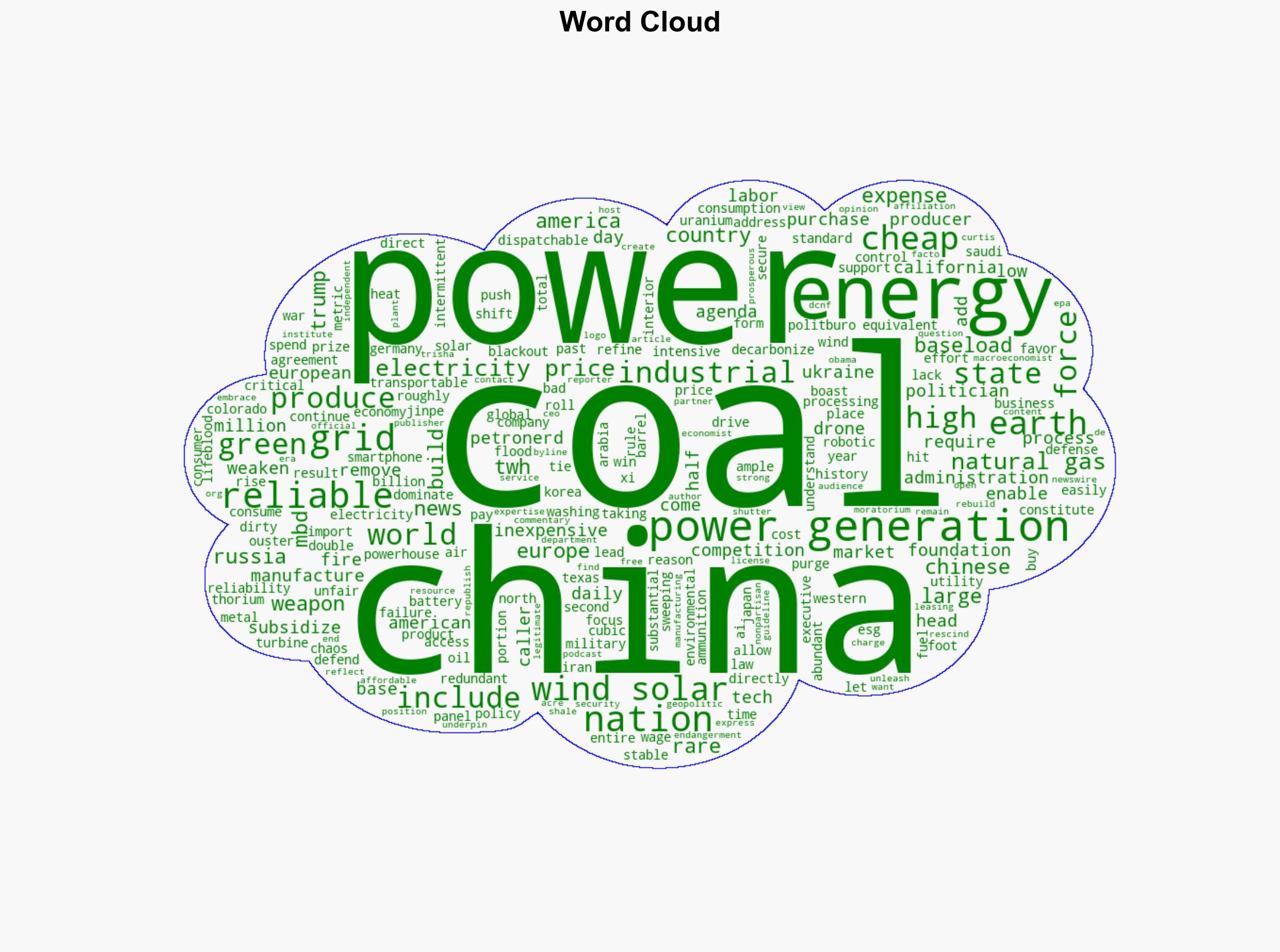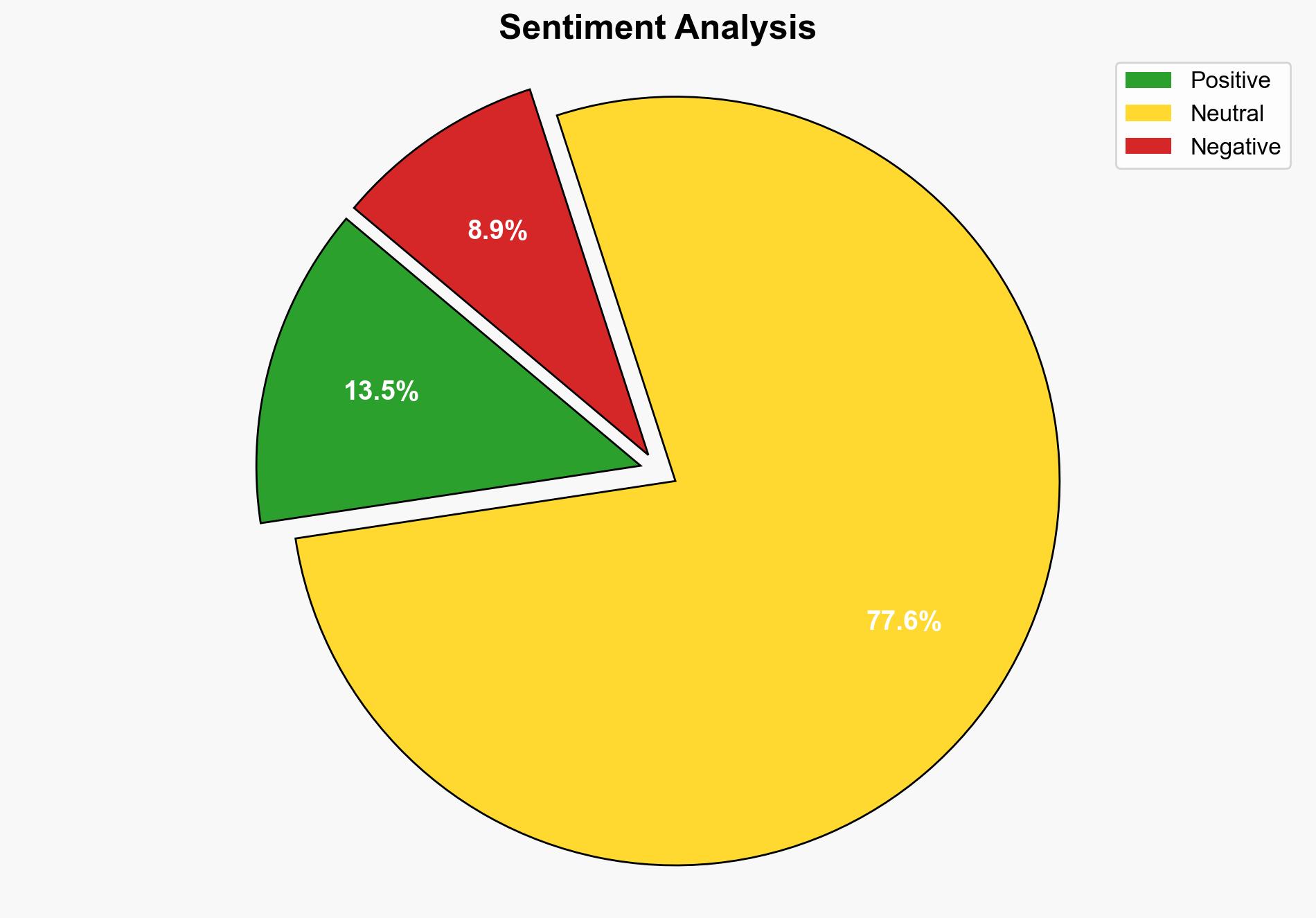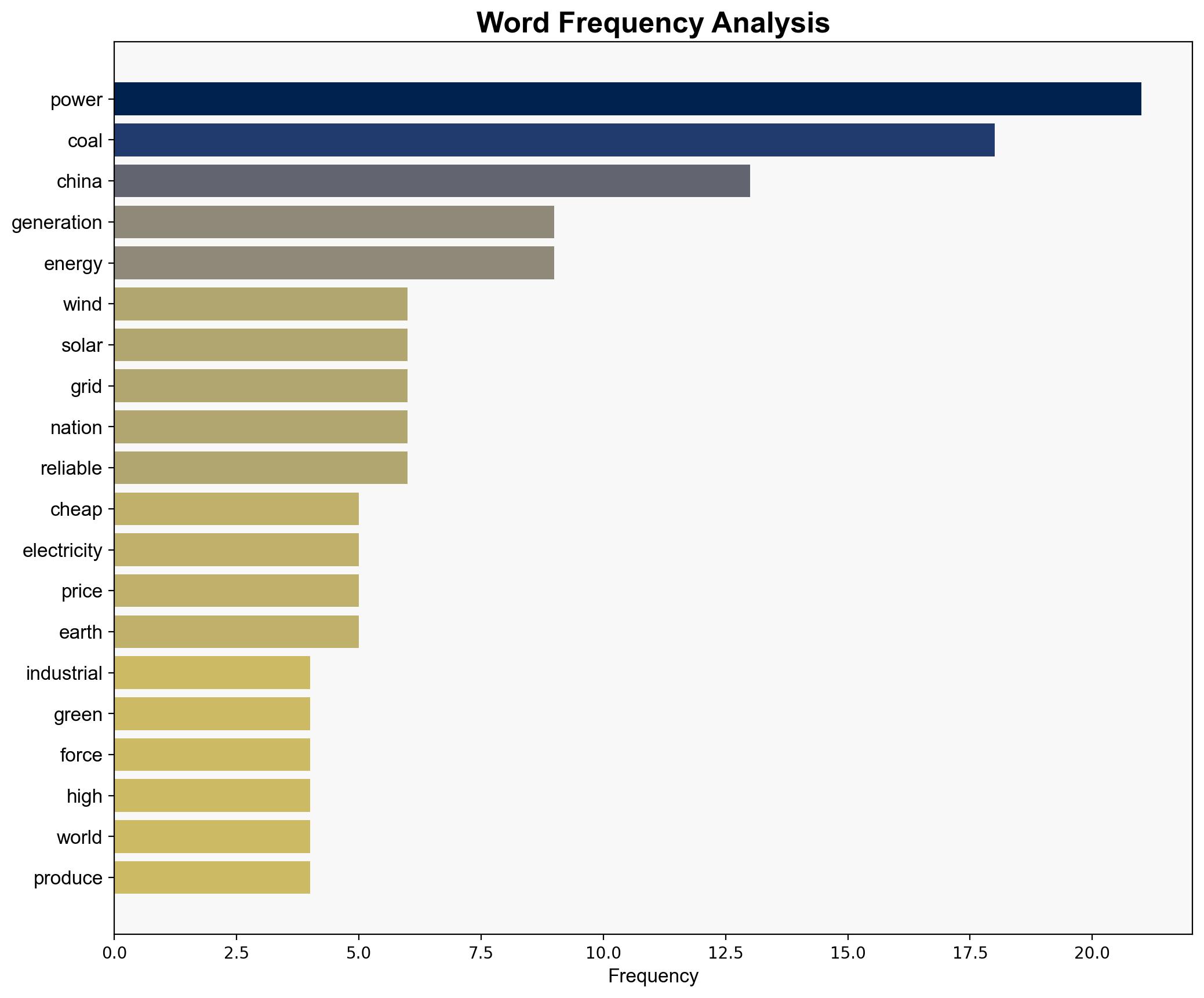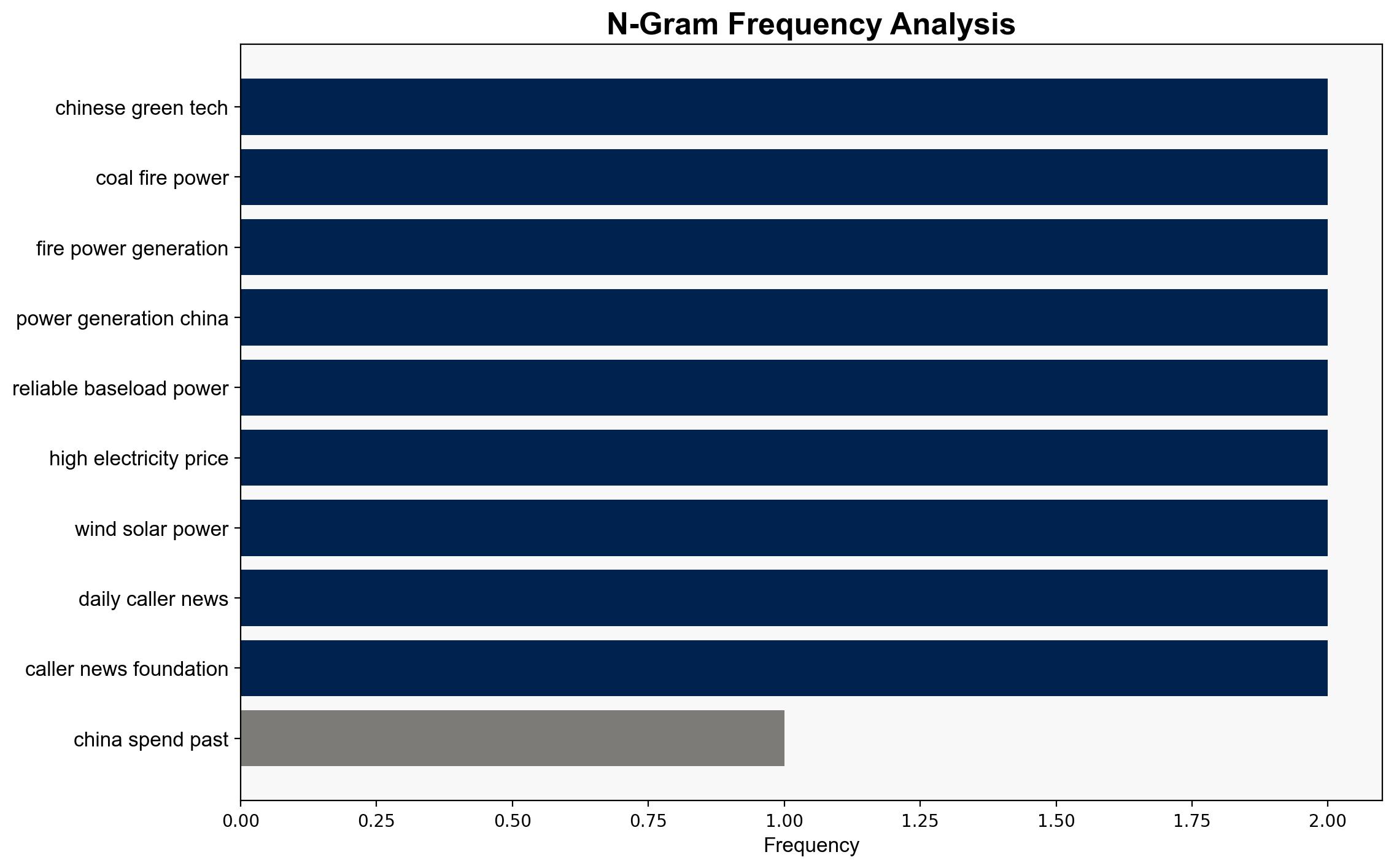TRISHA CURTIS Winning Against China Means Winning On Energy – The Daily Caller
Published on: 2025-10-20
Intelligence Report: TRISHA CURTIS Winning Against China Means Winning On Energy – The Daily Caller
1. BLUF (Bottom Line Up Front)
The strategic judgment is that China’s energy strategy, heavily reliant on coal, is a significant factor in its industrial dominance. The most supported hypothesis is that China’s energy policy provides it with a competitive advantage over Western nations focused on decarbonization. Confidence level: Moderate. Recommended action: Reassess energy policies to balance environmental goals with energy security and economic competitiveness.
2. Competing Hypotheses
1. **Hypothesis A**: China’s reliance on coal and its control over rare earth processing gives it a strategic advantage in global manufacturing and energy sectors, which Western nations cannot easily counter due to their focus on green energy.
2. **Hypothesis B**: The Western focus on green energy and decarbonization, although currently a disadvantage, will eventually lead to technological advancements and energy independence, reducing reliance on Chinese manufacturing.
Using ACH 2.0, Hypothesis A is better supported due to current global energy trends and China’s immediate industrial capabilities. Hypothesis B lacks immediate evidence of technological breakthroughs that could offset current disadvantages.
3. Key Assumptions and Red Flags
– **Assumptions**: Hypothesis A assumes China will maintain its coal-based energy strategy without significant international pressure or internal policy shifts. Hypothesis B assumes technological advancements in green energy will occur rapidly enough to counter China’s current advantage.
– **Red Flags**: Potential cognitive bias in underestimating Western innovation capabilities. Lack of data on potential shifts in Chinese energy policy or unforeseen technological breakthroughs in the West.
4. Implications and Strategic Risks
– **Economic**: Continued reliance on Chinese manufacturing could exacerbate trade imbalances and economic dependencies.
– **Geopolitical**: China’s energy strategy could enhance its geopolitical influence, particularly in regions reliant on Chinese technology and resources.
– **Cyber**: Increased cyber threats targeting energy infrastructure as nations compete for energy dominance.
– **Psychological**: Perception of Western decline in industrial competitiveness could impact public and investor confidence.
5. Recommendations and Outlook
- **Mitigation**: Diversify energy sources to reduce reliance on any single nation, particularly in critical sectors like rare earth processing.
- **Exploitation**: Invest in research and development for green technologies to accelerate innovation and reduce costs.
- **Scenario Projections**:
- **Best Case**: Rapid technological advancements lead to energy independence and reduced reliance on Chinese manufacturing.
- **Worst Case**: Continued reliance on Chinese energy and manufacturing leads to strategic vulnerabilities and economic dependencies.
- **Most Likely**: Gradual shift towards energy diversification with ongoing challenges in reducing dependency on Chinese resources.
6. Key Individuals and Entities
– Xi Jinping
– The Daily Caller
– Trisha Curtis
7. Thematic Tags
national security threats, energy security, geopolitical strategy, industrial competitiveness





